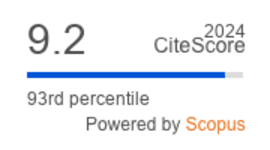Applications, Benefits, and Risks of ChatGPT in Medical and Health Sciences Research: An Experimental Study
DOI:
https://doi.org/10.36877/pmmb.a0000337Abstract
This article explored the potential applications, benefits, and risks of using ChatGPT in medical and health sciences research. The experimental study was performed with content analysis of the potential applications, benefits and risks of using ChatGPT in medical and health sciences research. This study shows many potential applications, benefits, and risks of using ChatGPT in medical and health sciences research. The average experts’ ChatGPT appropriateness and accuracy rates in the eight research themes were between 60% and 95%. This concludes that ChatGPT could help medical and health sciences researchers, especially new researchers, with caution in many aspects of research. The ChatGPT is still in the early phase of use by researchers worldwide, and its ability to help in research will be better soon. Attending training workshops about ChatGPT and AI is very important and highly recommended. The practice of ChatGPT in medical and health sciences research is important and recommended to explore the potential uses, benefits, risks and suggest recommendations for the best practice.
Downloads
Published
How to Cite
Issue
Section
License
Copyright (c) 2023 Yaser Mohammed Al-Worafi, Andi Hermansyah, Ching Siang Tan, Chee-Yan Choo, Abdelhakim Bouyahya, Ganesh Sritheran Paneerselvam, Kai Bin Liew, Khang Wen Goh, Long Chiau Ming

This work is licensed under a Creative Commons Attribution-NonCommercial 4.0 International License.
Author(s) shall retain the copyright of their work and grant the Journal/Publisher right for the first publication with the work simultaneously licensed under:
Creative Commons Attribution-NonCommercial 4.0 International (CC BY-NC 4.0). This license allows for the copying, distribution and transmission of the work, provided the correct attribution of the original creator is stated. Adaptation and remixing are also permitted.

This broad license intends to facilitate free access to, as well as the unrestricted reuse of, original works of all types for non-commercial purposes.
The author(s) permits HH Publisher to publish this article that has not been submitted elsewhere.



.png)

.jpg)
